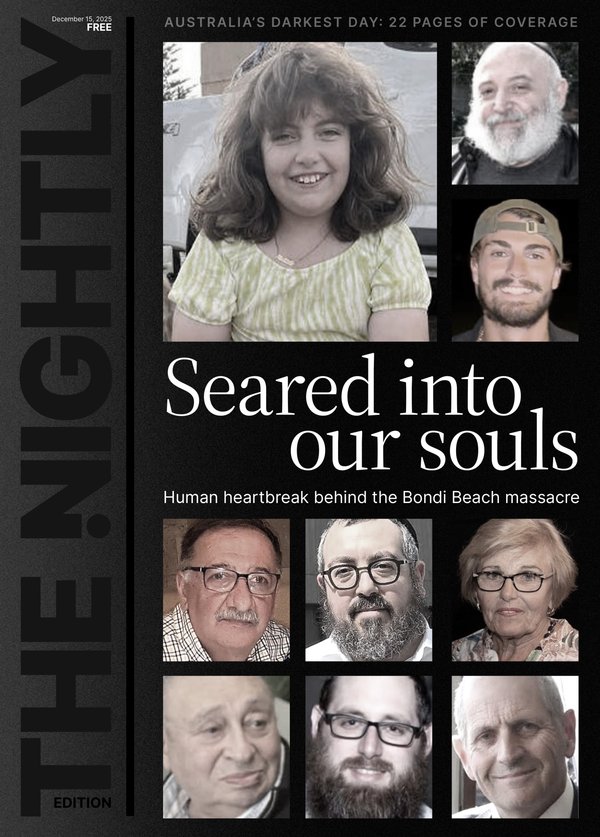As diners pinch pennies and battle cost of living pressures, Sydney’s top restaurants are shutting their doors
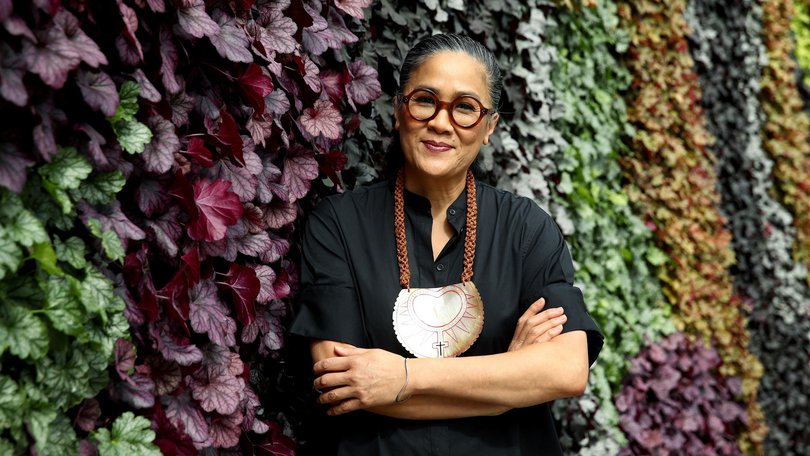
For decades, Sydney has been one of the world’s top dining destinations. But now the city is in a critical culinary moment as some of its most high-profile restaurants shutter, many of them victims of the ongoing cost-of-living crisis and the lingering effects of the pandemic.
The notable Redbird Chinese has already shuttered, along with sister venue Tequila Daisy.
Last month, celebrity chef Kylie Kwong announced she’ll shut her beloved eatery Lucky Kwong and retire.
Sign up to The Nightly's newsletters.
Get the first look at the digital newspaper, curated daily stories and breaking headlines delivered to your inbox.
By continuing you agree to our Terms and Privacy Policy.The acclaimed restaurant Tetsuya’s, which opened 35 years ago, will close its doors in July.
Many popular neighborhood venues are also calling time.
Owners throughout the industry have blamed the tough conditions on everything from elevated interest rates and rising wages to high prices and the aftereffects of the pandemic.
Looming workplace regulations that will be introduced in late August, aimed at improving minimum standards for casual workers, including pay, are also front of mind.
The rate of insolvencies for Australian hospitality businesses-already at a five-year high-is likely to accelerate, according to financial data provider CreditorWatch Pty Ltd.
Sticky inflation and the potential for stubborn interest rates are largely to blame.
Suresh Manickam, chief executive officer of the industry organization Restaurant and Catering Australia, points to the mounting everyday costs of running an eatery, including those associated with energy and interest rates.
On top that, consumers have become more cautious about spending money.
“There are multiple challenges at the moment,” says Manickam.
“Almost every single input that goes into doing business is rising. There’s nothing that we know of that is going down in terms of input.”
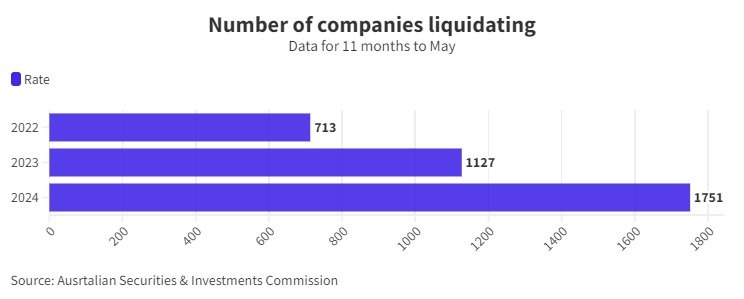
The accommodation and food-services sector is the second-hardest-hit industry after construction in Australia, according to government data, with 1751 insolvencies in the 11 months through May. That’s compared with 1127 in the same period a year ago and 713 in the period before.
The liquidations are being driven largely by small to medium operators with lower cash reserves.
The pressures are not restricted to Australia, nor exclusive to high-end restaurants.
The US fast-casual chain Red Lobster filed for Chapter 11 bankruptcy in May, citing a failed unlimited shrimp deal, along with inflationary pressures and higher labour costs, among the reasons. (About 100 of its almost 600 locations are scheduled to close.)
Still, the highest levels of dining seem to be most severely impacted.
Noma in Copenhagen, widely regarded as the world’s top restaurant, announced it will close in its current form in 2025; in London, the 57-year-old Le Gavroche closed earlier this year.
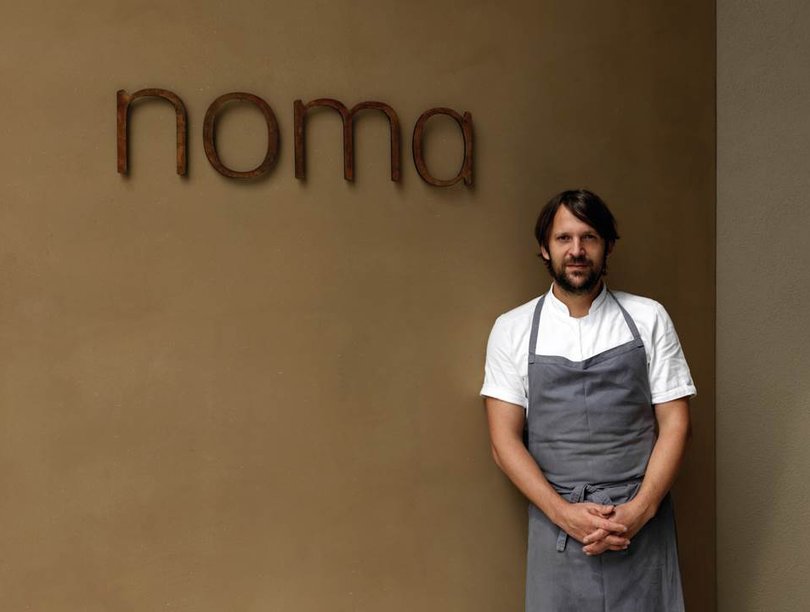
In Sydney, Hamish Ingham and partner Rebecca Lines, the team behind Redbird and Mexican eatery Tequila Daisy, said the economic climate was worse than during the 2008-09 global financial crisis.
“The current trading conditions are the toughest we have seen in our time of operating venues,” the duo said in a statement to a local food guide.
“With another quieter year approaching, we have decided it is best to call time on our venues.”
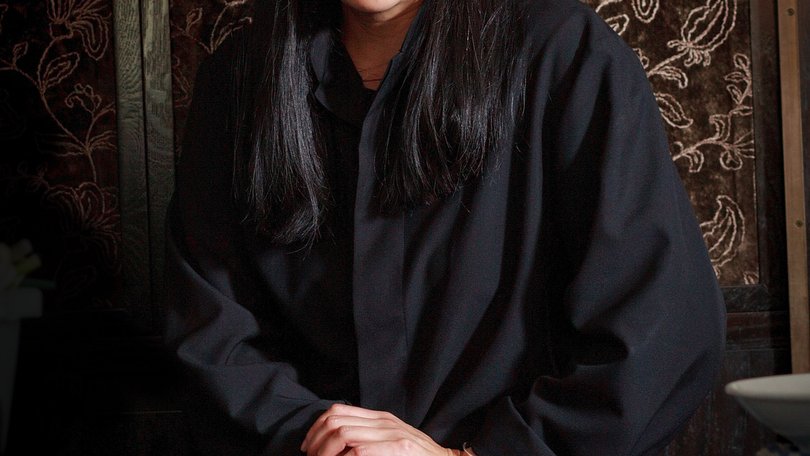
“Everyone is feeling it. I have never seen the restaurant industry in such tough times as it is right now,” she told the newspaper.
Steakhouse chain Botswana Butchery closed its three Australian restaurants in May after its parent company, Good Group Australia, entered voluntary administration the month before.
In Melbourne, popular Asian fusion restaurant Gingerboy blamed “market pressures” for closing after 18 years. And Hunter St. Hospitality, owned by Quadrant Private Equity, has shuttered its lavish Italian restaurant Rosetta Ristorante.
Some restaurateurs are taking advantage of the current climate by picking up distressed properties at a discount.
In May, Elizabeth Bay Cafe owner Phillip Stavrou added a fourth venue to his portfolio-his second purchase in as many months.
“We’re by no means thriving, but we realize now is a good time to expand and really solidify ourselves while others are closing down,” says Stavrou.
“It’s not going to be doom and gloom forever.”
The operator hopes he can ride the current downturn for an additional 12 to 18 months, working long hours and trying to keep costs down to remain profitable.
“In the worst-case scenario, we will just have to start trimming the fat,” Stavrou says.
